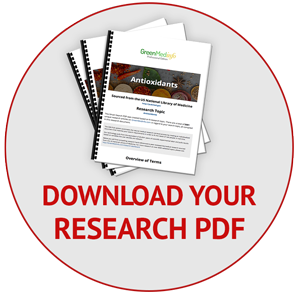A new study published in the Journal of Applied Toxicology has raised some disturbing possibilities regarding the dangers of a common preservative found in thousands of consumer products on the market today.
Breaking new research indicates that manufacturers throughout the world who were using the toxic hormone-disrupting chemical bisphenol A (BPA), may have simply switched to an equally toxic analogue in the same bisphenol chemical class known as bisphenol S (BPS), to evade regulatory oversight and trick consumers with their misleading "BPA-FREE!" labels....
A recent study shows that Goji berry polysaccharides improve dramatically BPA-induced damages to male reproductive physiology to near-normal levels, which could have a significant effect on male fertility.
Just when you thought it was safe to buy "BPA-free" products, manufacturers flood the marketplace with an alphabet soup of toxic bisphenols.
A new study reveals just how profoundly misled we are about Bisphenol A and its analogs: they are at least 100x more toxic than we previously imagined.
A new study published in the Journal of Applied Toxicology has raised some disturbing possibilities regarding the dangers of a common preservative found in thousands of consumer products on the market today.
Packaged food eaters beware: here's a hint of just a scant few of the items that lurk beneath the label in your packaged food products. And for those who are trying to get your friends and family off of packaged foods and on to a whole foods lifestyle, here's some more ammunition!
Cultured food has a wide range of health benefits, but recent research shows it may also degrade highly toxic pesticide residues found in our food.
Given what we are now exposed to through our food, air, and water, detoxification has become a modern-day necessity. Without the daily activation of ancient, effective physiological pathways designed to remove environmental toxins, we are bound to get sick. So, what are some simple, effective ways we rid our body of its daily toxic burden?
The Environmental Protection Agency recently removed Bisphenol A from a list of "chemicals of concern" for proposed regulations, once again siding with an increasingly deregulated chemical industry .
Packaged food eaters beware: here's a hint of just a scant few of the items that lurk beneath the label in your packaged food products. And for those who are trying to get your friends and family off of packaged foods and on to a whole foods lifestyle, here's some more ammunition!
Breaking new research indicates that manufacturers throughout the world who were using the toxic hormone-disrupting chemical bisphenol A (BPA), may have simply switched to an equally toxic analogue in the same bisphenol chemical class known as bisphenol S (BPS), to evade regulatory oversight and trick consumers with their misleading "BPA-FREE!" labels....
Keeping your receipts may make good financial sense, but it can seriously harm your health.
Keeping your receipts may make good financial sense, but it can seriously harm your health.
Could bacteria and related microbes, widely believed to be a primary cause of disease, explain how we are capable of surviving through the self-created chemical nightmare of industrialized society?
You know about the dangers of Bisphenol A (BPA), and hopefully Bisphenol S (BPS), but did you know that there are at least 8 toxic bisphenols in our food supply, with 75% of food samples from the US tested showing significant levels of these ubiquitous poisons?
A recent study shows that Goji berry polysaccharides improve dramatically BPA-induced damages to male reproductive physiology to near-normal levels, which could have a significant effect on male fertility.
Given what we are now exposed to through our food, air, and water, detoxification has become a modern-day necessity. Without the daily activation of ancient, effective physiological pathways designed to remove environmental toxins, we are bound to get sick. So, what are some simple, effective ways we rid our body of its daily toxic burden?
The Environmental Protection Agency recently removed Bisphenol A from a list of "chemicals of concern" for proposed regulations, once again siding with an increasingly deregulated chemical industry .
A new study reveals just how profoundly misled we are about Bisphenol A and its analogs: they are at least 100x more toxic than we previously imagined.
New research is revealing something remarkable about why the body sweats. Beyond its obvious role in regulating body temperature, sweating has been found to facilitate the bodily elimination of accumulated heavy metals and petrochemicals, indicating that if we want to be healthy we should put regular effort into doing more sweating.
As we reported on back in June of last year in an exposé titled, Consumer Alert: BPA-Free Goods Still Contain Toxin Bisphenol, the petrochemical bisphenol A (BPA), a ubiquitous ingredient in thousands of consumer products and which has been linked to a wide range of serious adverse health effects, has been removed by many ostensibly scrupulous manufacturers in favor of another equally toxic analog in the same chemical class, known as bisphenol S (BPS).
Cultured food has a wide range of health benefits, but recent research shows it may also degrade highly toxic pesticide residues found in our food.
New research is revealing something remarkable about why the body sweats. Beyond its obvious role in regulating body temperature, sweating has been found to facilitate the bodily elimination of accumulated heavy metals and petrochemicals, indicating that if we want to be healthy we should put regular effort into doing more sweating.















